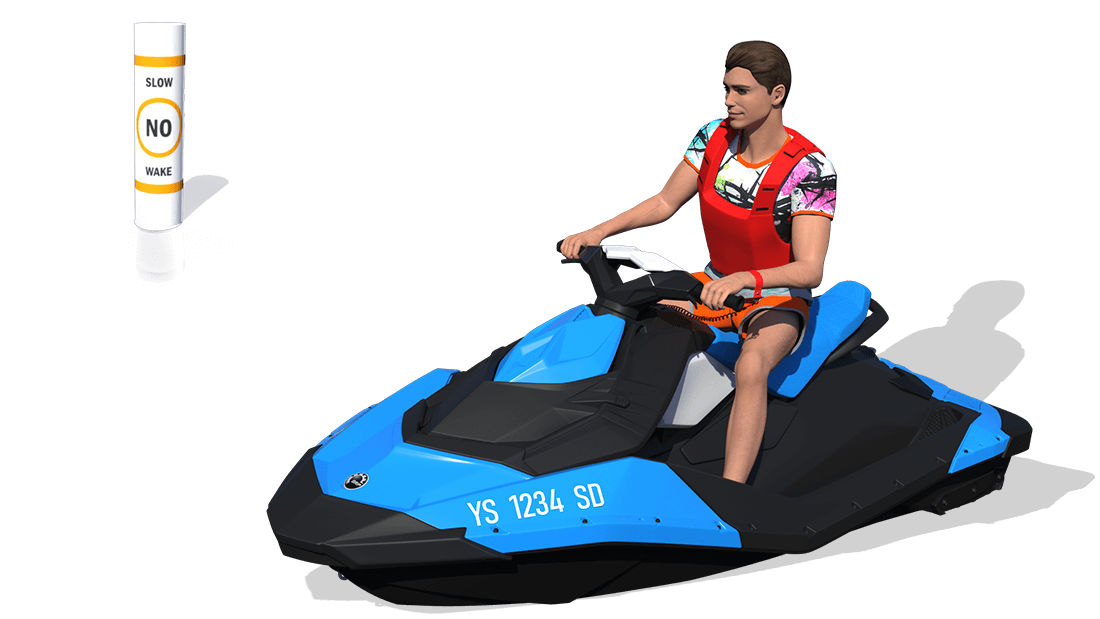Personal Watercraft (PWC) in Nevada

PWC are defined as small vessels that:
- Use a water jet pump as the primary power source
- Are designed to be operated in a sitting, kneeling or standing position
In addition to the regulations and laws regarding power vessels, PWC are also subject to the following laws and regulations in the state of Nevada:
-
PWC operators must be at least 14 years old.
-
All PWC operators, passengers, and anyone being towed must wear a USCG-approved PFD at all times
-
Although it is not required by law, it is strongly recommended that the operator of a PWC attach the lanyard of the engine cut-off switch to their wrist or PFD.
-
It is illegal to operate PWC between sunset and sunrise or during periods of restricted visibility unless PWC is equipped with the required navigation lights.
-
PWC may only be used to tow a person on water skis or similar devices if it has a capacity rating for at least 3 people: the operator, observer, and the skier, and is specifically designed by the manufacturer for towing skiers.
PWC must be operated in a careful and responsible manner. It is considered reckless operation if a PWC operator commits two or more of the following acts simultaneously:
- Operating a PWC within a zone closer than five (5) lengths of the longest vessel, unless both vessels are travelling at ‘’no wake speed’’
- Operating within the vicinity of a vessel in a manner that obstructs the visibility of either operator
- Heading into the wake of a vessel that is within a zone closer than five (5) lengths of the longest vessel and causing half or more of the length of the PWC to leave the water
- Maneuvering quickly, turning sharply, or swerving within a zone closer than five (5) lengths of the longest vessel unless the maneuver is necessary to avoid a collision.